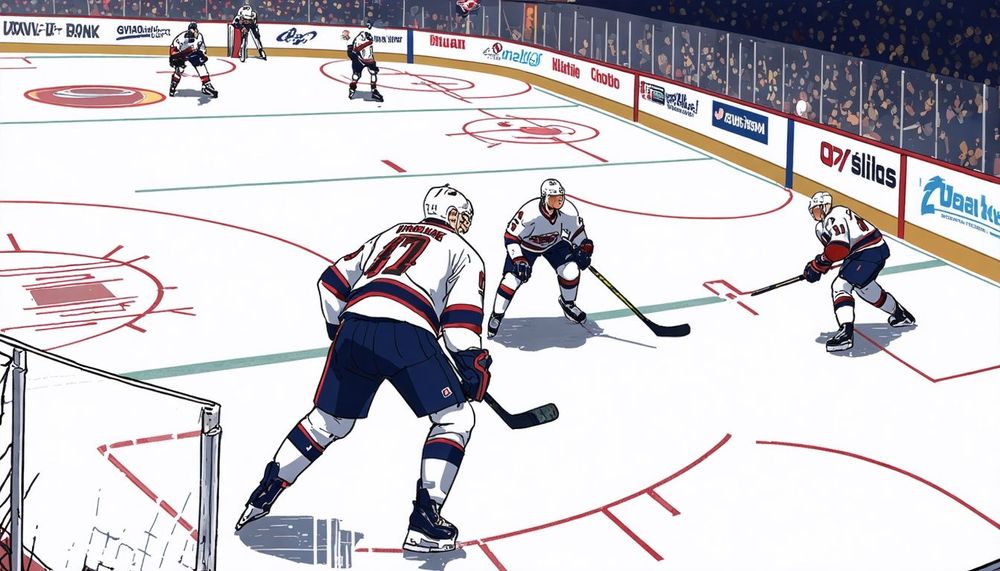Expansion Season in the NHL: Cities in Consideration for Future Teams

The Stanley Cup has been awarded, the draft has introduced a new generation of prospective superstars, and the recent wave of free agency has concluded. This sequence of events signals that expansion discussions within the NHL are heating up. During its pre-draft meeting in June, the NHL's Board of Governors deliberated on potential cities vying for inclusion in a 34-team league. Notably, hockey insider Frank Seravalli hinted at a new contender expressing interest in expansion. Subsequently, analysts at Moneyline reevaluated potential candidate cities, ranking them based on their qualifications.
One potential but unlikely candidate is Indiana. While the state is not typically associated with hockey, some older fans may recall that Wayne Gretzky began his professional career with the WHA's Indianapolis Racers, which operated in the late 1970s before folding. Today, the hockey landscape in Indianapolis is represented by the ECHL's Indy Fuel, playing in Fishers, but their home arena, holding only 7,500 fans, is deemed insufficient for NHL standards. Meanwhile, the nearby Gainbridge Fieldhouse hosts NBA and WNBA events, illustrating the challenges the Fuel face in becoming a contender for NHL expansion discussions. Recently, sources connected to an IndyStar article indicated a lack of public discourse from serious expansion advocates regarding Indiana's viability as a candidate.
Conversely, interest in hockey in New Orleans has garnered more attention, though concrete developments remain minimal. Louisiana governor Jeff Landry and U.S. representative Steve Scalise publicly confirmed in March that they had discussions with the NHL concerning a possible team for the Crescent City. Landry emphasized the substantial economic impact the presence of an NHL team could bring, as evidenced by his comments on social media. Historically, New Orleans has not had a lasting hockey presence, with the ECHL's New Orleans Brass folding in the early 2000s as the NBA franchise now known as the Pelicans took over their arena. Prospective NHL teams in New Orleans would likely share the Smoothie King Center with the Pelicans, who have struggled to attract fans despite a playoff appearance record of four times in 12 seasons.
Austin, Texas, emerges as another candidate as its identity has shifted from quirky to a growing technology hub. Seravalli's report referenced Austin due to its sizeable metro population—approximately 2.5 million—as well as its proximity to the AHL's Texas Stars. However, the home venue, H-E-B Center in Cedar Park, accommodates only 6,800 fans, indicating that a new, larger arena would be essential for NHL viability. Atlanta has a complex history with the NHL, having previously lost two franchises: the Flames relocated to Calgary in 1980, and the Thrashers moved to Winnipeg in 2011. Vernon Krause, CEO of Krause Sports and Entertainment, aligns with the NHL's requirements by proposing a new NHL-ready arena in Forsyth County, bolstered by the involvement of hockey legend Bobby Orr as an adviser, which might help rectify the city's previous shortcomings as a market.
Finally, Houston remains a noteworthy consideration for potential expansion due to a rich hockey history led by the WHA's Aeros. While Houston missed the opportunity to join the NHL during the 1979 expansion, billionaire Dan Friedkin, who now owns a controlling interest in Premier League's Everton and has shown interest in the NHL, could be instrumental in reviving Houston's NHL aspirations. Reports indicate that Friedkin's group has engaged in discussions with NHL officials, suggesting a favorable outlook for a future franchise in Houston.









